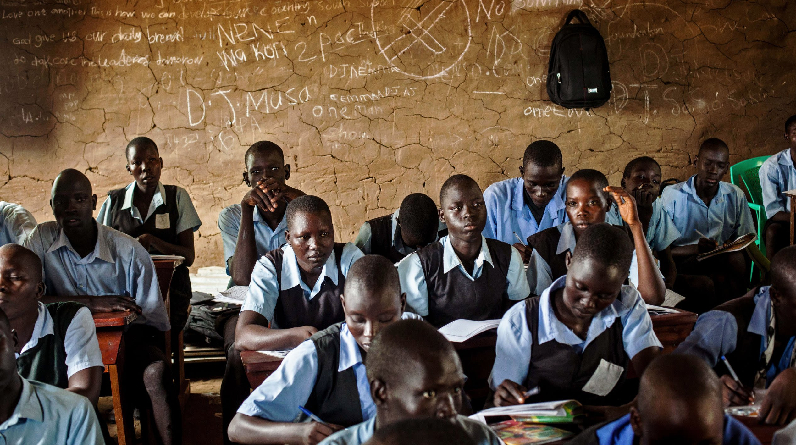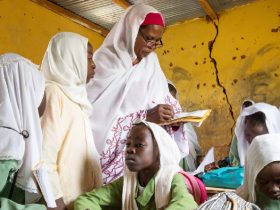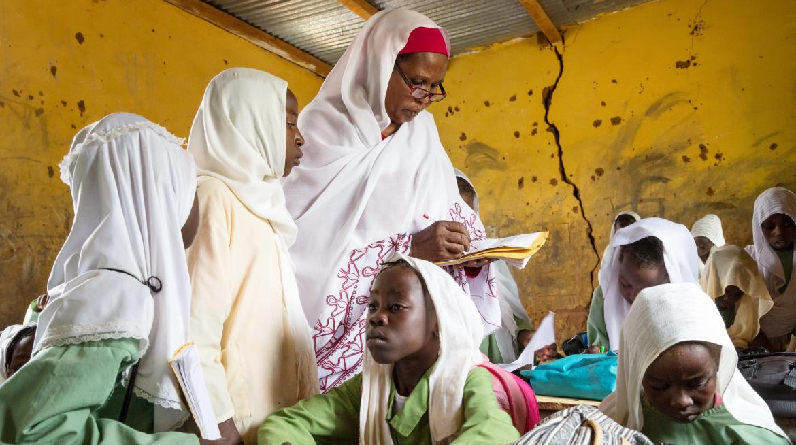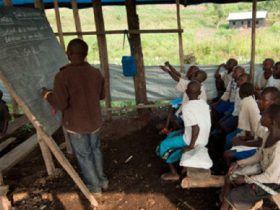When compared to other regions of the world, South Sudan ranks dead last in terms of girls’ access to education. In 2017, 73% of girls aged 9-12 did not attend school. An estimated 53 percent of brides are under the age of 18. South Sudan is one of the youngest countries in the world, but it has already experienced war, violence, and revenge killing. In times of extreme stress, such as prolonged food insecurity or economic hardship, the easy access to weapons can turn even the smallest conflict into a major catastrophe.
Family honour is being threatened by this type of violence, and as a result, some families feel they have no choice but to resort to forced marriage in order to ‘protect’ their daughters from sexual violence, rape, and pregnancies outside of marriage. Extreme poverty and a lack of opportunities encourage impoverished families to sell their daughters as brides for money. It should come as no surprise, but it is still shocking, that in South Sudan females have a higher risk of dying during childbirth than completing high school.
In light of this, the Loreto Sisters opened a secondary school for girls in the rural outskirts of Rumbek in Lakes State, South Sudan, in 2008. Mary Ward (1585–1645), founder of the Loreto Sisters, had a vision that ‘women in time to come will do much,’ which has inspired the work of the Loreto Sisters around the world. As time has passed, the school’s reputation has grown and it is now considered among the best in the country for young women. There have been a total of 290 graduates from the school so far, and many of the girls have been given the resources they need to continue their education at the university level in fields of their choosing.

The school’s success in giving girls like Ayor and Amakou who are fiercely committed to getting an education a voice is one of its greatest assets. When Ayor found out that her father was making wedding plans for her, she immediately left home. Amakou lost both her parents when she was young; her father passed away when she was very young, and her mother perished when their home was attacked. Amakou and her brother made it by hiding out in the bush. Both girls agreed that school was their best chance at a successful future despite their difficult circumstances.
Loreto Secondary serves as more than just a place of learning for Ayor and Amakou and a lot of other girls. There is a wide variety of programmes designed to help the girls’ mental, emotional, and physical health. Children can learn, be creative, and play in a secure setting at the school. It makes an effort to include girls from a wide variety of socioeconomic and cultural backgrounds. By fostering a culture of mutual respect and understanding among its student body, the school is helping to realise the dream of a peaceful future for South Sudan.
See Also: We Have No Plans To Launch A Military Action Inside Afghanistan, The FM Said. Bilawal Bhutto
The school instituted a transition year to aid students who were having difficulty making the jump from primary education, which is often completed in schools with very limited resources, to secondary school. This year has been pivotal in allowing more low-income female students to enrol in and graduate from high school.
The school has implemented a novel peer support system in which the more senior students are assigned the role of’mother’ or ‘grandmother’ to the younger students, who are referred to as ‘daughters.’ This is done to cater to the emotional needs of the girls. In doing so, freshmen women have found a safe space to share their worries and stresses with peers who can relate. This is especially crucial in societies where teenage girls who defy societal and cultural norms by continuing their education may be shunned by their families and communities.
The use of so-called “commitment forms” is another novel concept. Girls dropped out at alarming rates when the school first opened because their families took them away from the institution, often to prepare them for marriage. To combat this, the institution instituted a commitment form that both the girl’s legal guardian (typically her father or uncle) and the school must sign to guarantee that the girl will not be removed from school before she has finished her education. Local authorities will be present to witness the signing. This form’s introduction led to a 98% response rate. The school has utilised this strategy on multiple occasions when female students’ families have attempted to remove them from school.
The Loreto Girls Secondary School exemplifies the role of a school as both a place of learning and an advocate for the advancement of women and girls through education. The four pillars of their strategy are as follows: (a) a wide variety of programmes designed to help girls overcome the many challenges they face; (b) a determined and deliberate approach to helping each girl reach her potential; and (c) the provision of a high-quality education that will allow girls to continue their education beyond high school and enter the profession of their choice. Students like Elizabeth Adak, who started her law degree in 2014 and finished her studies in Rumbek in 2021. She finally passed the Bar Exams in May 2022, bringing her closer to her goal of advocating for the equality of women and girls in South Sudan.







Leave a Reply